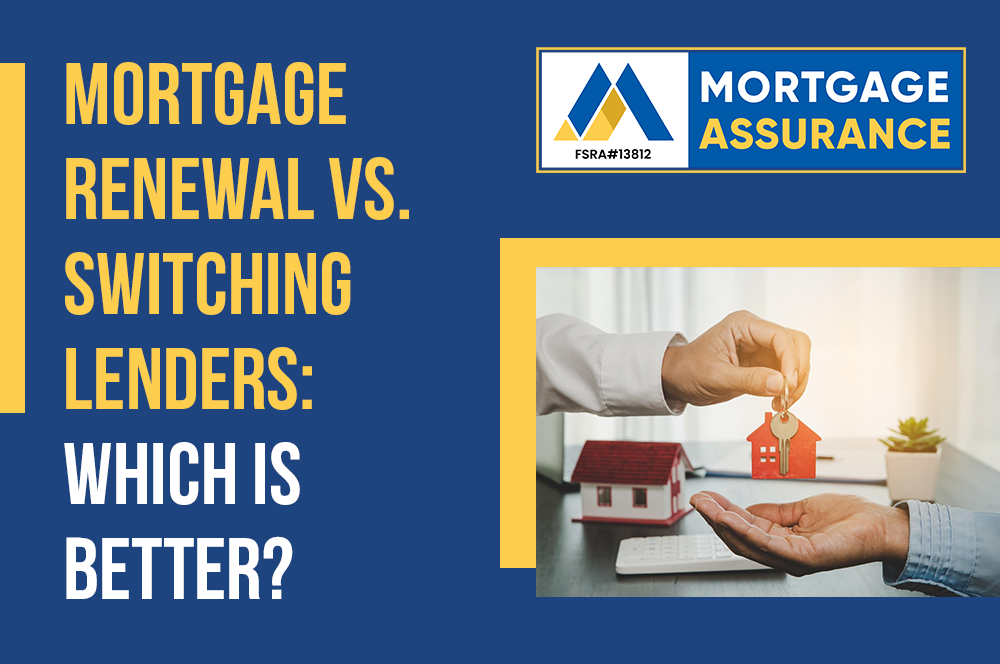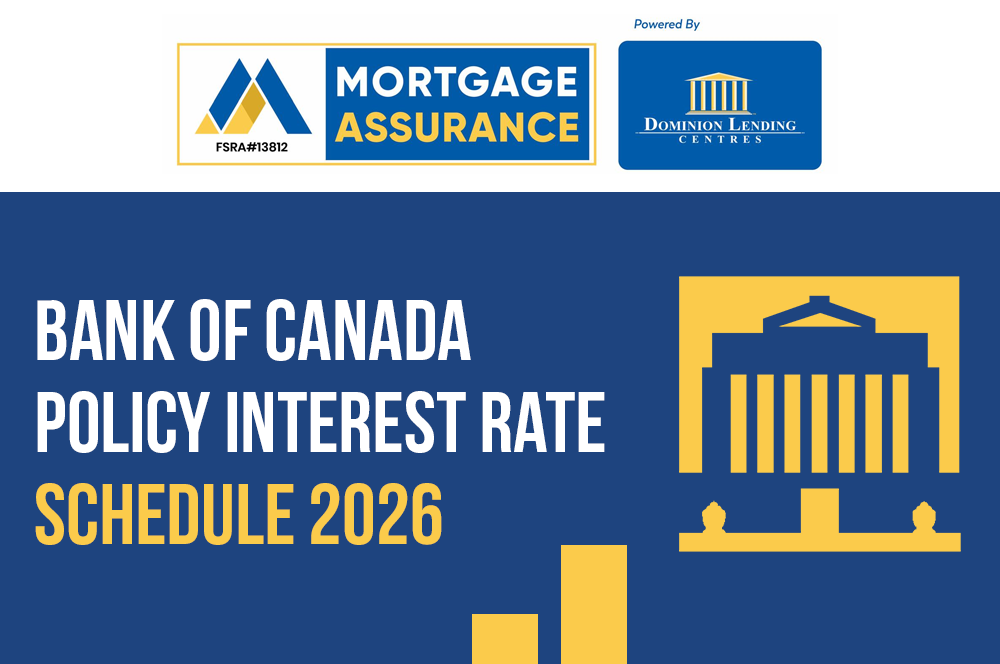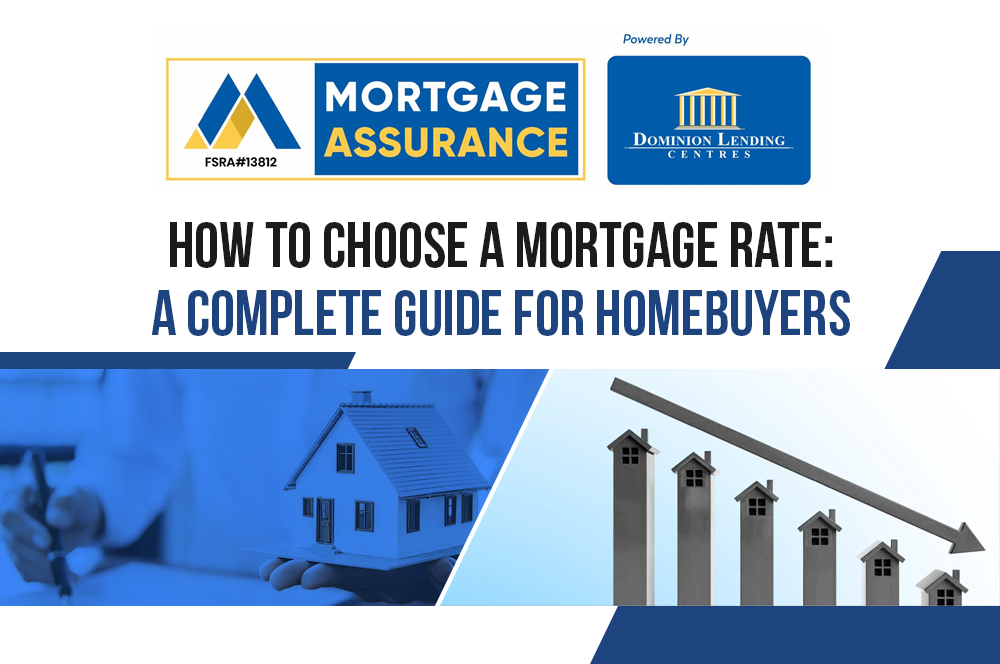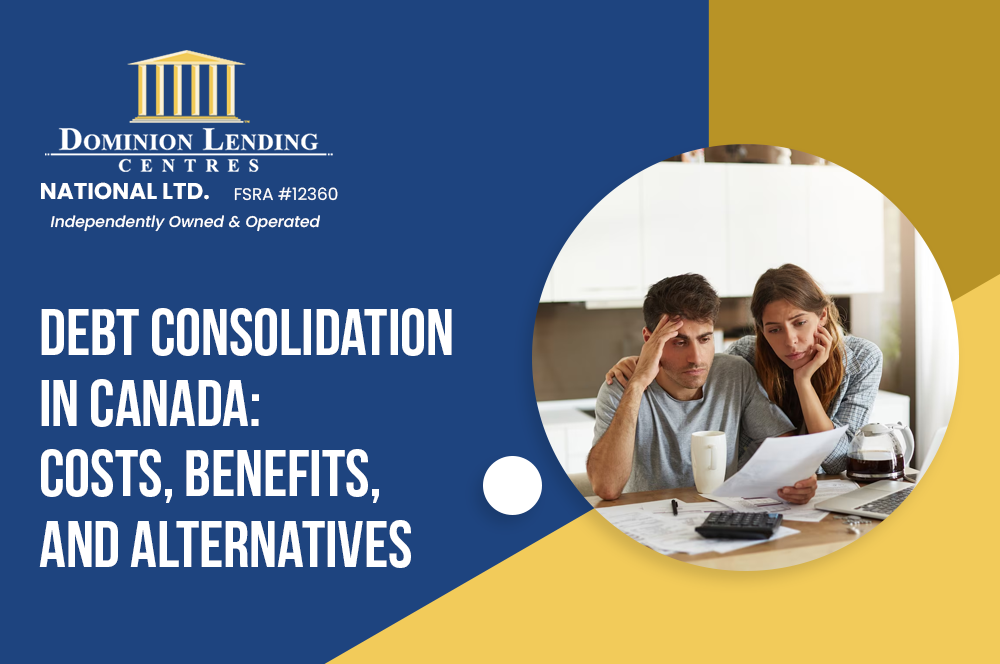For most Canadians, a mortgage is the most significant financial commitment they will ever take on. But unlike other loans, a mortgage doesn’t typically run its full course in one fixed term. Instead, it is broken into shorter terms, often between one and five years. When your term ends, you will need to renew your mortgage.
Mortgage renewal time is an opportunity—not just a routine step. It is your chance to review your finances, explore your options, and potentially save thousands of dollars over the life of your loan.
What Is a Mortgage Renewal?
When your current mortgage term ends, you need to renew it if the balance isn’t fully paid off. Renewal means committing to a new term with updated conditions, including:
- Interest rate (fixed or variable)
- Term length (1–10 years, most commonly 5 years)
- Payment frequency (weekly, biweekly, or monthly)
- Amortization period (how long until your mortgage is fully paid off)
If you don’t take action, your lender will usually send a renewal offer about 120 days (4 months) before your term ends. While convenient, simply signing that offer without shopping around could ultimately cost you more.
Why Mortgage Renewal Matters in Canada (2025 Context)
As of 2025, many Canadian homeowners are facing higher mortgage payments due to rising interest rates, which contrasts with the historically low rates seen during the pandemic. This makes renewal even more critical, since the new rate can significantly impact your monthly budget.
For example:
- A $400,000 mortgage at 2% interest has a monthly payment of about $1,695.
- Renewing at 5% increases that to $2,326 per month—a difference of $631.
This illustrates why shopping around at renewal is critical.
Key Factors That Affect Your Mortgage Renewal
1. Interest Rates
The most significant factor in your renewal is the interest rate. Even a slight difference—say 0.5%—can add up to thousands in interest savings over your mortgage term. Compare offers from multiple lenders, not just your current bank.
2. Your Credit Score
Lenders may reassess your financial situation at renewal, especially if you switch lenders. A strong credit score gives you access to better rates. If your credit has improved since your last term, use it to your advantage.
3. Debt-to-Income Ratio
If your debts have grown, it might affect your ability to qualify with a new lender. Paying down high-interest debt before it is due for renewal can improve your chances of securing a lower rate.
4. Amortization Period
Some homeowners extend their amortization period at renewal to lower payments. While this provides short-term relief, it means paying more interest over time.
5. Market Conditions
The Bank of Canada’s policy interest rate directly influences mortgage rates. Staying informed about economic trends can help you determine whether to opt for a fixed or variable rate at renewal.
Steps to Take Before Your Mortgage Renewal
Step 1: Start Early
Don’t wait until the last minute. Most lenders allow you to lock in a rate 120 days before renewal. This protects you from potential rate hikes.
Step 2: Review Your Current Mortgage
Ask yourself:
- Am I comfortable with my current payment amount?
- Do I want to pay off my mortgage faster?
- Should I switch to a different payment frequency?
Step 3: Shop Around
Mortgage brokers can compare offers from multiple lenders, often finding better deals than your bank’s first offer.
Step 4: Negotiate With Your Current Lender
If you prefer to stay with your bank, use competitor offers as leverage to negotiate a lower rate.
Step 5: Consider Prepayment Options
Many mortgages let you make lump-sum payments or increase your payment amount. Taking advantage of these features at renewal can help you pay down your mortgage faster.
Fixed vs. Variable Rates at Renewal
When renewing, you will need to choose between a fixed and variable mortgage rate.
- Fixed-Rate Mortgage: Your rate and payments remain the same for the term. This offers stability and peace of mind, especially if you expect rates to rise.
- Variable Rate Mortgage: Your payments may fluctuate with market conditions. Historically, variable rates have saved Canadians money, but they carry more risk.
A hybrid or “split” mortgage is also an option, where part of your loan is fixed and part variable.
Common Mistakes to Avoid at Mortgage Renewal
- Automatically Accepting the First Offer – Convenience often comes at a cost. Always compare rates.
- Not Checking Your Credit Score – A low score can limit your options. Correct errors before renewal.
- Ignoring Prepayment Privileges – Overlooking these can delay your mortgage payoff.
- Extending Amortization Without a Plan – Lower payments may be tempting, but they increase long-term costs.
- Waiting Too Long to Act – Starting late reduces your negotiating power.
Tips to Get the Best Mortgage Renewal Deal in Canada
- Use a Mortgage Broker: They can access multiple lenders and secure competitive rates.
- Stay Informed: Follow Bank of Canada updates on interest rates.
- Negotiate Aggressively: Even a slight reduction in rate matters over time.
- Consider Your Long-Term Goals: Are you planning to move, refinance, or pay off faster? Choose terms that align with your plans.
- Don’t Be Afraid to Switch Lenders: Yes, there may be some paperwork, but the savings often outweigh the hassle.
Frequently Asked Questions (FAQs)
- Do I need to requalify for my mortgage at renewal?
If you stay with your current lender, typically not. If you switch lenders, you will need to requalify under current stress-test rules.
- Can I renew early?
Yes, some lenders let you renew early without penalty, especially within 120 days of your term ending.
- What happens if I miss my renewal date?
Your lender may automatically renew you into a higher-rate open mortgage, which is usually more expensive.
- Can I change my amortization period at renewal?
Yes, you can shorten it to pay off faster or extend it to reduce payments, depending on your financial goals.
Conclusion
Your mortgage renewal in Canada is not just paperwork—it is a financial opportunity. By preparing early, understanding your options, and negotiating effectively, you can reduce your payments, save on interest, and align your mortgage with your financial goals.
Remember: The key is not to accept your lender’s first offer without exploring the market. With the right strategy, your mortgage renewal could help you move closer to financial freedom. Contact us for more information.






